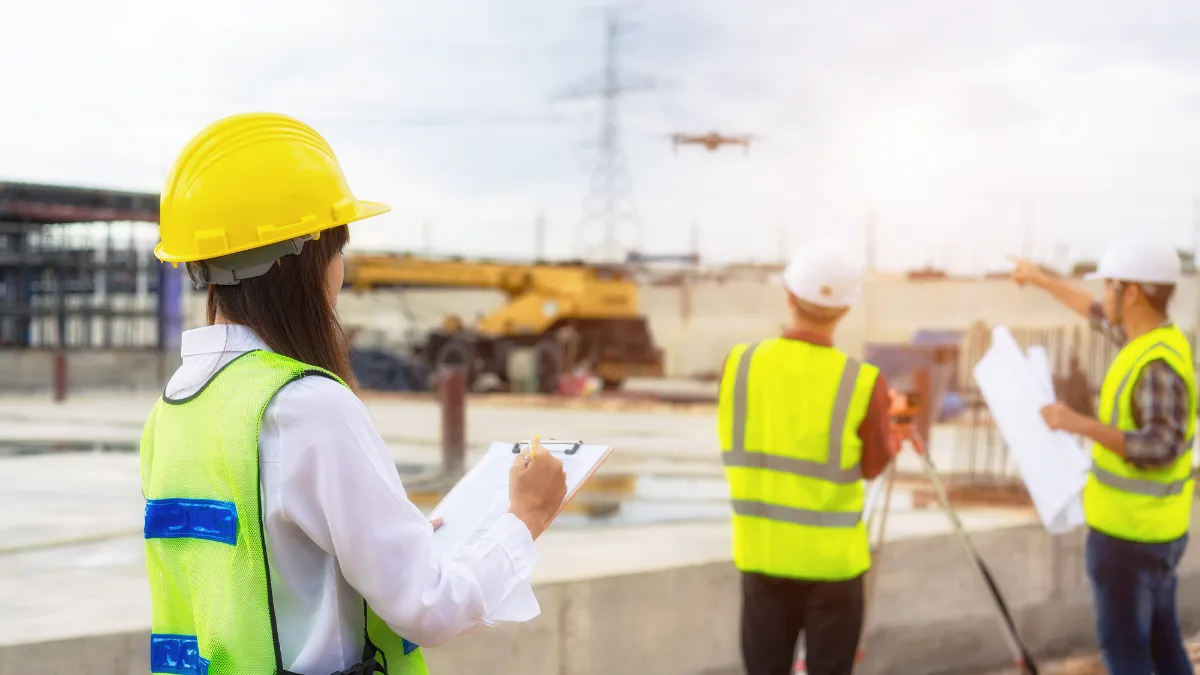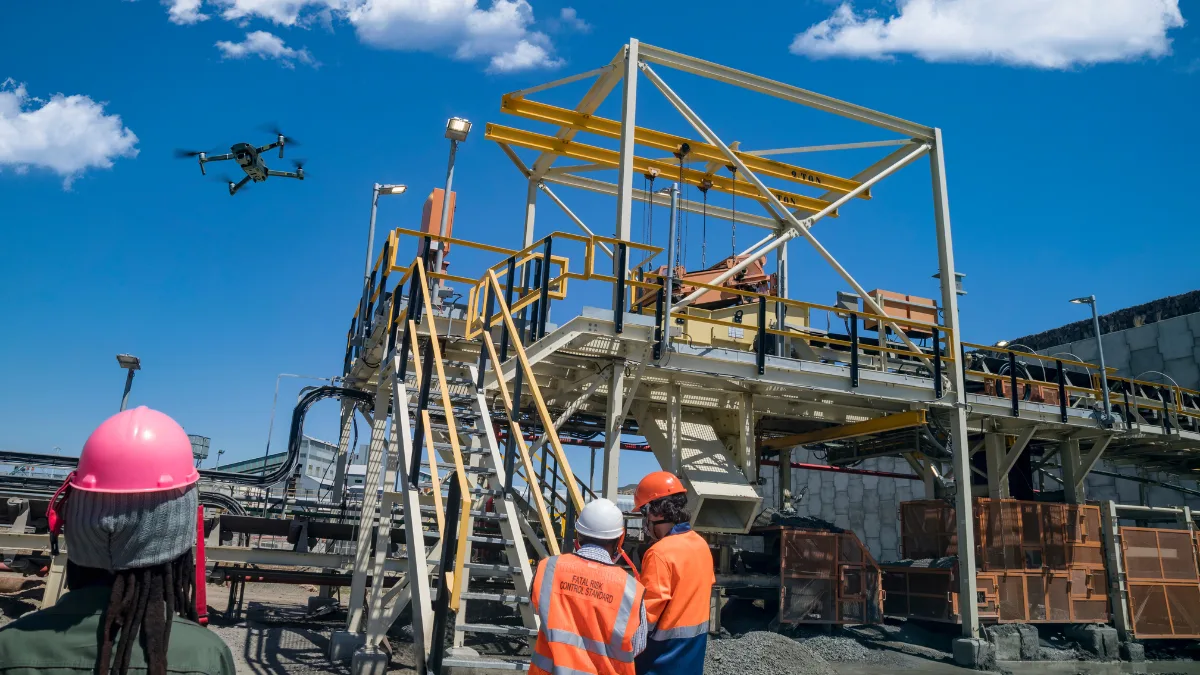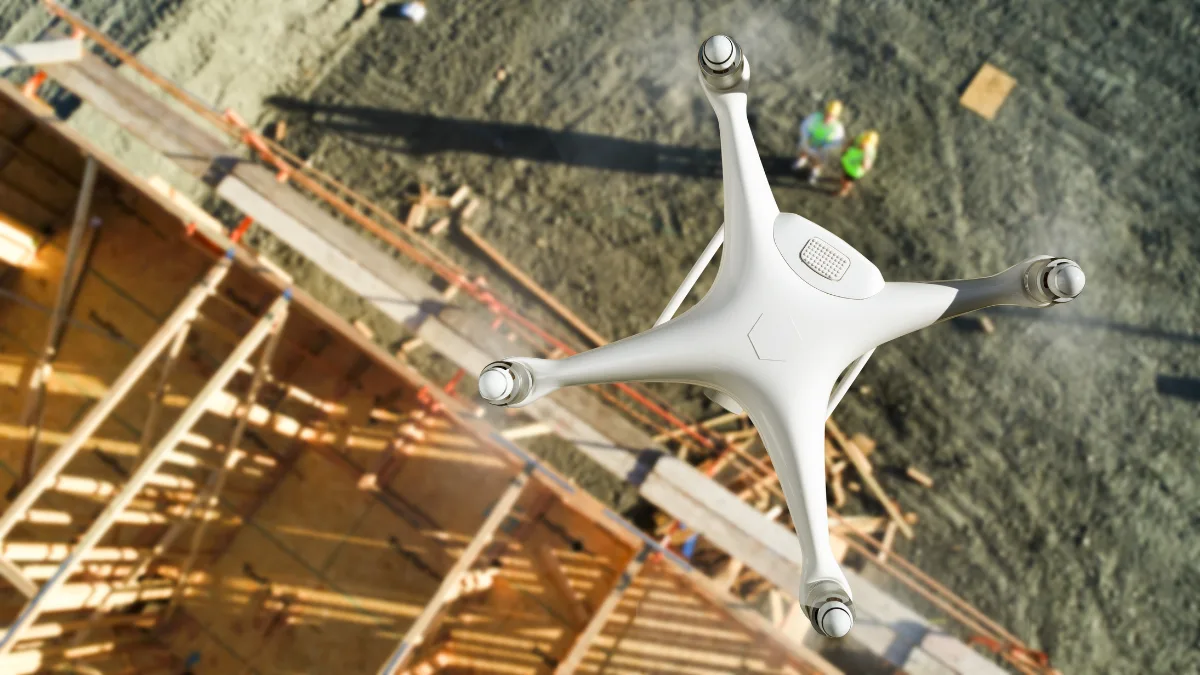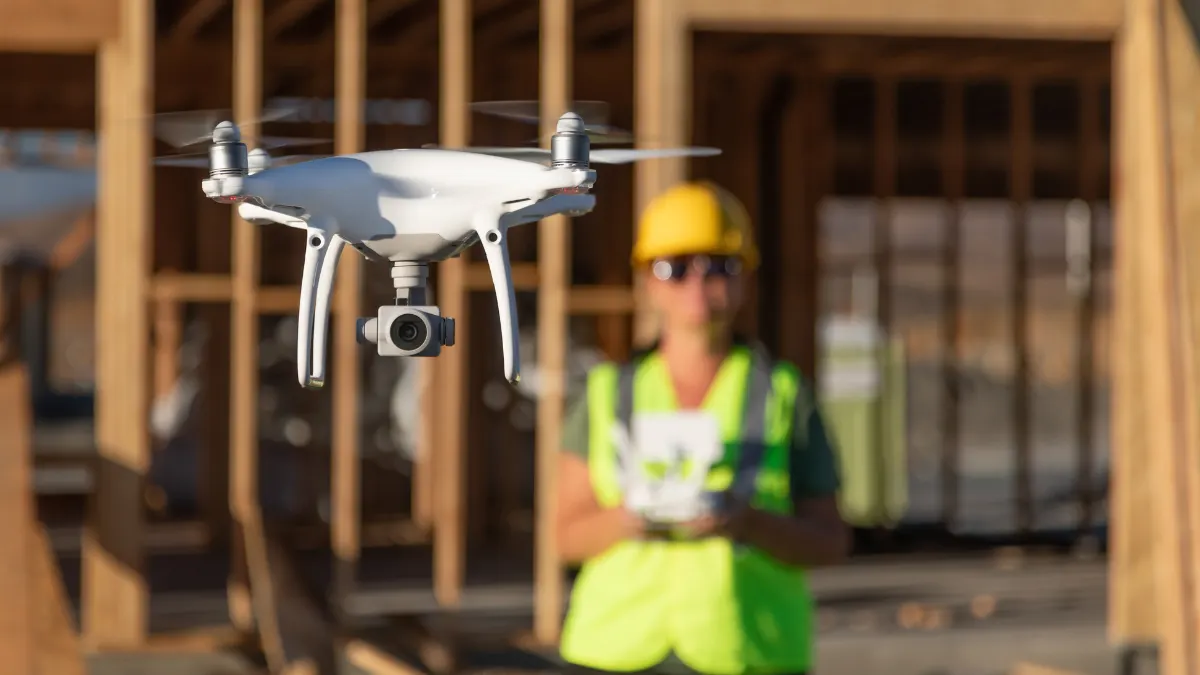The presence of drones as a recording tool for more efficient aerial image needs has benefited various sectors, one of which is the construction industry. Drone in the construction industry have some functions and advantages.
The functions of drone in the construction industry include land survey and mapping to documentation reporting. The advantages include increased efficiency to increased safety.
This article will give you information on drone in the construction industry from definition, functions, and the advantages that they have.
What is a Drone in the Construction Industry?

Drones in the construction world are used in land mapping, surveying, project progress monitoring, and structure inspection. So that the planning, design, and maintenance of construction projects can refer to the data collected by drones.
The Functions

Drone in the construction industry have several functions from land survey and mapping to documentation reporting. Here are some of its functions:
- Land survey and mapping: Able to conduct land surveys and mapping quickly and efficiently with accurate visual data results.
- Real-time project monitoring: Allows for real-time monitoring, allowing for informed decision-making.
- Material volume calculation: This can help calculate the material volume of soil, sand, and stone used.
- Documentation reporting: The progress of the project can be well documented in the form of photos or videos.
The Advantages

Drone in the construction industry have several advantages from increased efficiency to increased safety. Here are some of its main advantages:
1. Increase efficiency
One of the advantages of drones is their ability to increase efficiency. Remote surveying and mapping work can be done with drones more quickly, reducing the time spent in the field.
2. More efficient structural inspections
Another advantage of drones is their ability to perform more efficient structural inspections. Drones can perform structural inspections on bridges, buildings, and other infrastructure quickly and efficiently, helping to identify damage and ensure construction quality.
3. Better project monitoring
With drones, project monitoring can be done better. Project progress can be monitored in real-time, helping to identify potential issues and ensure that work is carried out as planned.
4. Better data accuracy
Another advantage of drones is their better data accuracy capabilities. With drones data can be collected with a high degree of precision, making it possible to create highly accurate topographic maps. This is very important for the planning and design of construction projects.
5. Increased safety
Increased safety is another one of the advantages of drones. Hard-to-reach or dangerous areas such as steep slopes or unstable construction sites can be easily inspected by drones without risking the safety of workers.
Those are the drone definitions, functions, and advantages of drone in the construction industry that you need to know. Another thing to note is that drones on the market must pass the certification test from the Directorate General of Digital Infrastructure (DJID).
With DJID certification, users can feel calm about using drone in the construction industry whose quality and security are guaranteed. For manufacturers or importers of drone in the construction industry, obtaining certification from DJID is a mandatory step before the device can be officially marketed in Indonesia.
To simplify the certification process, we are available to assist with this process as a reliable solution. [UN]

